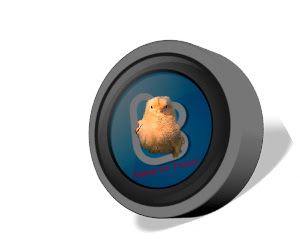Kelly Liljeblad
Kelly Liljeblad

© Copyright - 2010 - Christopher Kelsall
Kelly Liljeblad recently joined McMillan Running, which adds yet another complement and further diversification to McMillan's professional services. Earlier this year he hired successful ultra-marathon runner Ian Torrence as an ultra coach, to serve a growing quantity of requests for the specialized training of ultra running - a discipline that Greg does not personally focus on. Now with Kelly Liljeblad who is a successful marathon runner, ironman coach and athlete, McMillan Running offers a complete athletics and endurance package.
I recently had a chance to talk with Kelly about her migration to McMillan Running. Below is our interview, where she shares information about the differences between marathon and ironman training.
The interview
Christopher Kelsall: What attracted you to join McMillan Running?
Kelly Liljeblad: I met Greg in 2003. He coached me to my breakthrough marathon. I ran a 12 minute PR running a 2:36 in Rhode Island that year. I have learned so much from Greg over the years. Our relationship started as coach and athlete, but soon developed into friendship. He's a great guy and after years of being his athlete, I now enjoy working with him.
CK: 2:32 is your marathon personal best, how does that compare to your Ironman personal best of 10:08?
KL: I think a 9:30-45 Ironman compares to a 2:32 marathon, so I am a bit off!
CK: You indicate that one of your influences is Arthur Lydiard. When building your aerobic base for ironman, do you build the swimming, cycling and running the same way, in blocks where you build your aerobic base first, hills or I suppose resistance (for swimming and cycling) second and anaerobic next?
KL: Biking and running in Ironman training follow similar builds. There are different phases of training and each must be developed before proceeding to the next phase. All the cycles lead up to a peak phase where you are doing workout sessions very specific to your event. Swimming is a bit different. In one given week you do a wide variety of workouts. Swimming is just always hard. Lots of hard intervals, all with a different focus. It's not like running where at the end of a marathon cycle, you run many long runs at MP. In swimming you are always doing fast speed sets. It's always broken up unless you are practicing open water.
CK: Why is that?
KL: Swimming is all about practice. Practicing a proper and efficient swim stroke is key. Every swim session should include drill work, focussing on swim stroke weaknesses. Intervals are the key to swimming.
CK: Back onto running, apparently your favourite workout is a 23-mile run with the last 10 miles starting at marathon pace and working down to 10k pace. That is a tough workout. Do you have the legs when training for ironman to perform this particular long run?
KL: No way. It is so different training for an ironman marathon. Your legs just never feel as fresh and you can certainly lose natural leg speed training for an ironman. The races are so different and therefore the training is different. Ironman training is all about a proper balance of all three disciplines.
CK: Would you like to concede which of the three disciplines is more influential on the outcome of your ironman race?
KL: The bike perhaps may be the most influential. The run is where most people fall apart, but a strong bike ride and proper nutrition and pacing on the bike can lead to a successful run. Most of the race day fueling is also done on the bike. Make a mistake here and you'll suffer the consequences on that run. 26 miles is a long way especially if you are walking! The stronger the cyclist you become, the fresher you will be coming off the bike and heading out of T2.
CK: At what point in that long run do you start visualizing Shed Mountain Ale and Lasagna?
KL: Not until a few hours after! And lately it's being replaced with a Roasted Red Switchback Ale and a burger.
CK: Cheese, pickles and fries?
KL: Yes :)
CK: Is your next racing goal getting that ironman time down to 9:30 to 9:45?
KL: I'd like to do one more Ironman this summer. I hope to break 10 hours finally!
CK: Which event are you targeting?
KL: I am targeting Ironman Lake Placid in July. I raced it in 2007 and had mechanical problems on the bike, which lead to a frustrating race for me. I'm hoping for a better result this year! It's a great course and in my opinion the best Ironman on the circuit (besides Kona of course!).
CK: Is Greg coaching you through this one, or are you self-coached now?
KL: My twin sister and professional ironman triathlete Kim Loeffler trains me for all my Ironman races.
CK: Kim has an impressive resume and she has had success at Lake Placid. Any chance of a 1 - 2 sister finish in the near future somewhere?
KL: Kim is an incredible Ironman Triathlete and has been focusing on Ironman for 9 years straight. I go back and forth between running and triathlon and when I am running, I don't touch the bike or even dangle my toes in the water! I juggle work, school, and other responsibilities, so I can't put in the kind of mileage that Kim or many of the top Pro women put in. Kim would kick my butt in triathlon, but I'll never let her beat me in a road race haha! My goal is a top-8 finish. I missed it by one place in Ironman CDA so I'm hoping this time I reach my goal!
CK: Ever had her coach Lance Watson, coach you?
KL: I tagged along with Kim on some of Lance's workouts. He's a great coach with a great reputation. Kim has always coached me and it works out very well for us.
Lance Watson
"Kelly and Kim are special athletes and special people. Kelly had some great run results, of course, and was also a very talented triathlete, though she never fully explored it. I did a little work with Kelly as she explored triathlon. Like Kim, she was a very hard worker, dedicated, and never cut corners in her training. Her true passion is running though. Kelly and Kim train together a fair bit, which was great as they are best friends and big supporters of each other's careers. They are hard to tell apart but I could do it!"
CK: As a coach yourself now, are you taking on all levels of athletes?
KL: I love variety. I enjoy working with people training for their first 5k, first sprint triathlon, first Ironman, trying to qualify for Kona, the Olympic trials etc...I coach all levels of athletes. My coaching is never monotonous and always keeps me on my toes.
CK: Can you talk about some of your coaching successes?
KL: I love my job. I love coaching. I have learned so much over the years and have worked with some of the best coaches in the industry, including Greg McMillan. I love sharing this knowledge and passion with athletes of all abilities. Since I come primarily from a running background, I specialize in helping runners transition into triathlon. When people ask me what I do for a living, I reply, "I make dreams come true!" I've helped triathletes qualify for Kona, the olympic trials, and Boston. The rewards are amazing for me. One of the things I really work on with my athletes is their mental preparation. I teach them to believe in themselves and in their training. I work a lot on the "mental game"
CK: You wrote a blog post about one of your athletes running 'organically' with regard to pacing. You wrote: "There were no pace charts or heart rate monitors. I wanted him to get a feel for running and learn his internal limitations and effort levels". Is this a more effective, for long-term understanding where the athlete's anaerobic threshold, V02 Max and recovery efforts are and where they should be run at as opposed to wearing a watch or HRM?
KL: Greg wrote an awesome article a few years ago about today's technology and how athletes are relying so much on this external data that they are in fact neglecting their "inner gps". I couldn't agree more. While this information is useful and does have its place in a training program, it often becomes quite overwhelming. People are so focused on numbers, paces, graphs, and charts. I want my athletes to train scientifically, but also organically. I want them to be aware of and "feel" an easy pace without their watch dictating that easy pace. I refuse to give an athlete a pace for an easy recovery day. On easy days, heart rate and internal RPE dictates the pace, not the watch. I learned this from Greg a very long time ago!
Scroll down for comments section
Contact Chris: chriskelsall@flocasts.org
Related Content
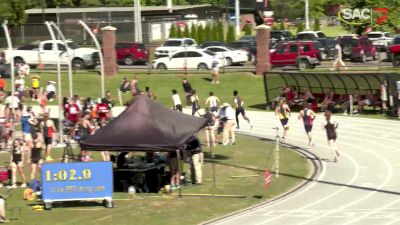 Replay: SAC Outdoor Track & Field Champions | May 1 @ 1 PM
Replay: SAC Outdoor Track & Field Champions | May 1 @ 1 PMMay 2, 2024
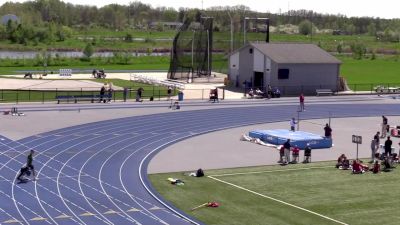 Replay: GLIAC Outdoor Track Championship | May 1 @ 1 PM
Replay: GLIAC Outdoor Track Championship | May 1 @ 1 PMMay 1, 2024
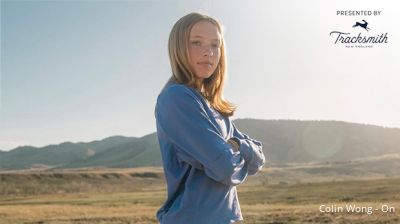 PR Of The Week presented by TrackSmith: Addison Ritzenhein
PR Of The Week presented by TrackSmith: Addison RitzenheinMay 1, 2024
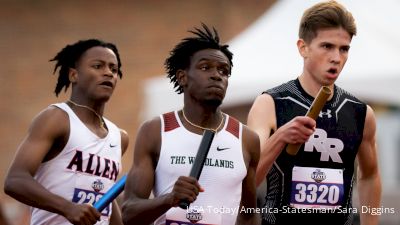 UIL Track And Field State Championships 2024: What To Know
UIL Track And Field State Championships 2024: What To KnowMay 1, 2024
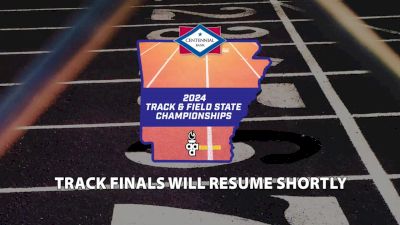 Replay: AAA Outdoor Champs | 4A | Apr 30 @ 11 AM
Replay: AAA Outdoor Champs | 4A | Apr 30 @ 11 AMMay 1, 2024
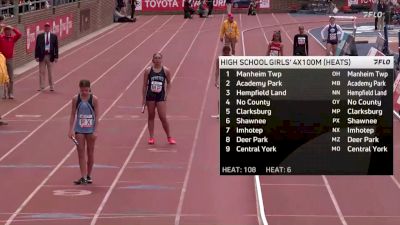 High School Girls' 4x100m Relay Event 108, Prelims 6
High School Girls' 4x100m Relay Event 108, Prelims 6May 1, 2024
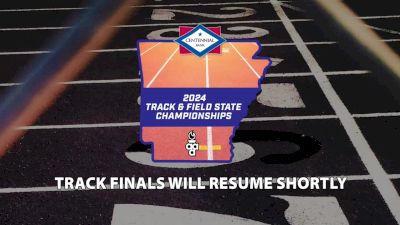 Replay: AAA Outdoor Champs | 3A | Apr 30 @ 11 AM
Replay: AAA Outdoor Champs | 3A | Apr 30 @ 11 AMMay 1, 2024
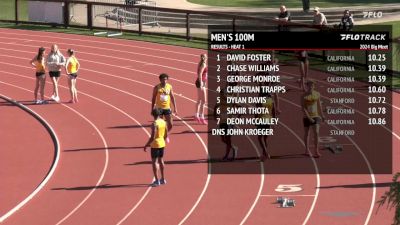 Replay: Big Meet | Apr 30 @ 3 PM
Replay: Big Meet | Apr 30 @ 3 PMMay 1, 2024
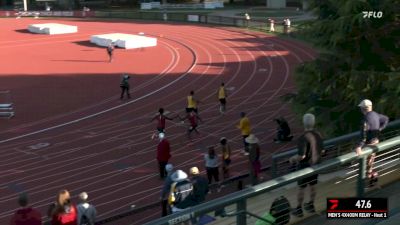 Men's 4x400m Relay
Men's 4x400m RelayMay 1, 2024



